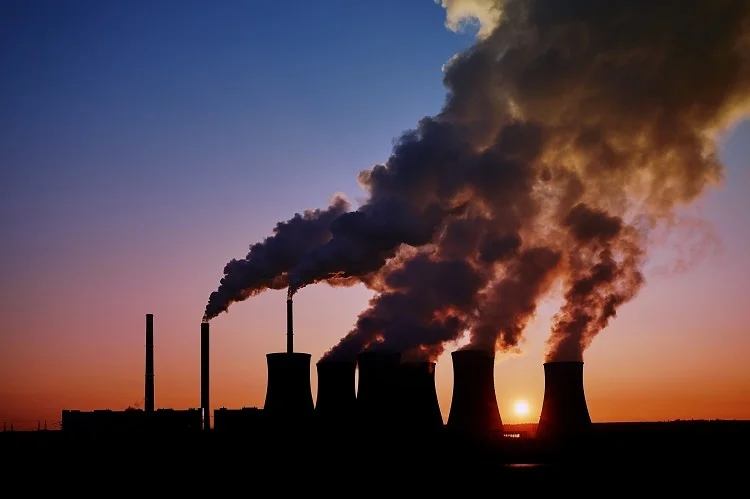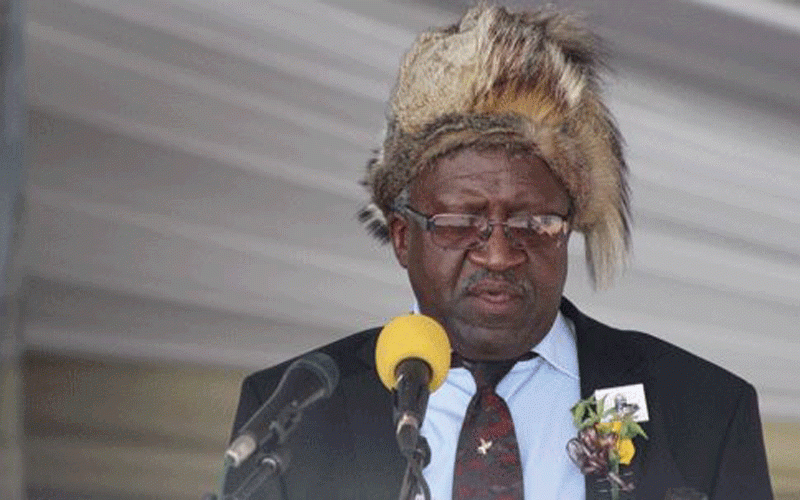
By Peter Makwanya AS the discourse of carbon emissions becomes amplified and articulated, there appears to be a common thread of split personalities or nations, both in Africa and globally. In the context of on-going carbon emissions whether land or fossil fuel-based, the world has awakened to new emerging emission trends that leave the whole world in more problematic situations than ever anticipated. Instead of keeping coal, oil and gas underground, there are spirited moves to resume mining and drilling operations especially for coal and gas.
While the United Nations Framework Convention on Climate Change (UNFCCC) Conference of Parties (COP) conferences are normally dominated by carbon emission mitigation issues, the world has been thrown into emissions disarray, ahead of the UNFCCC COP 27 to be hosted by Egypt in November 2022. Things seem to be falling apart with regard to managing accelerating and sky rocketing carbon emissions which also proves problematic for nations to transit to low carbon economies or realise net-zero parameters.
Events from the past few months and weeks point towards the shifting of the once noble and principled stance of reducing carbon emissions globally to that one of ambivalence or rather out-right resumption of coal mining in some European countries such as UK and Germany including the USA arguing for more gas-fired power. The main reason being cited is the ongoing war between Russia and Ukraine. One wonders if this is a reasonable excuse or an opportunity that needs to be grabbed which also came at the right time. Of course, these may not be the best and easier decisions for the countries concerned but all the same, this does not make any wrong, right and also does not promote sustainable development. For quite some time, the global community of nations has been looking at these developed countries to lead the way and provide sustainable solutions, including climate finance towards phasing out fossil fuel energy from the global landscape.
Now that the centre appears failing to hold, who would police who? It would be emissions free for all while baking the earth non-stop.
In this unfolding discussion, the areas of concern to be interrogated should first include the Russian-Ukraine war which has exposed the world in terms of lack of sustainability security in terms of double-speaking or failure to walk the talk. As the war continues raging, there are high-level military aviation and ship-vessels emissions everyone is silent about.
Second, reality has also dawned on European countries that coal, a substance that they vowed to keep underground, is becoming a mineral of choice. It has to be mined no matter how much carbon emissions are involved. Third, Africa is also into fossil fuels exploration rush with countries such as Uganda, Tanzania, Namibia and Zimbabwe leading the way. Not to be forgotten is South Africa, which has been actively involved in coal mining for quite a long time. These are the global emissions matrices that are currently unfolding while at the same time exposing the global community of nations and making it difficult for them to achieve carbon emission reductions or transit towards clean energy economies.
While the concept of net-zero emission reductions has emanated from Europe, particularly in UK, it became one of the first European countries to announce the resumption of coal mining operations, citing the impact of Russia-Ukraine war on its energy supply chain. With or without the Russian-Ukraine war, which on its own is also contributing to military aviation-based emissions including that of transporting arsenal to war zones as well as toxic emissions induced during military operations, these countries never walked the talk. In this regard, no amount of public relations talk, green washing, posturing or communication massaging will be enough to repair the damage done. For this reason, Europe is at war while deeply in the emissions mix, where it is both choked by its own carbon emissions and the astronomical costs of war. One wonders what kind of emissions talk would they bring at UNFCCC COP 27 in Egypt towards the end of this year.
Europe, by virtue of being the most developed and industrialised continent, has the highest number of aviation companies and airlines, in Air France, KLM, British Airways, Lufthansa, Iberia, Ryanair, among others.
- Chamisa under fire over US$120K donation
- Mavhunga puts DeMbare into Chibuku quarterfinals
- Pension funds bet on Cabora Bassa oilfields
- Councils defy govt fire tender directive
Keep Reading
Already, in terms of aviation-based emissions, Europe is in the forefront whilst its heavy manufacturing industrial base is doing the same including the Russia-Ukraine war playing host to a number of emissions that the world has chosen to ignore.
Not to be forgotten are Japan, India, China, Brazil and South Africa. Although they are classified as the BRICS, they are quite emission and pollution intensive. It is also the Europeans, North America, Australia, Japan, China and India, that are very active in churning out large quantities of global emissions. Many leading oil and gas mining and exploration companies are from Europe, North America, Australia and the BRICS. Talk of Shell, TotalEnergies, Mobil, Eni, Gazprom, BP, Lukoil, among others. These are joined by the Middle-Eastern countries and Gulf States, with no any other source of income besides oil revenues.
This leaves Africa in a dilemma, with only Nigeria, Algeria, Angola Libya, Equatorial Guinea, South Sudan, Egypt, among others as the leading oil-producing countries while Uganda, Tanzania, Namibia and Zimbabwe, are eagerly busy exploring for oil and gas, to benefit from fossil fuel mining like what leading global economies did. They built their empires from oil mining, heavy and diversified industrial and manufacturing bases. The challenge with Africa is that while the countries are to participate in renewable energy transition, they also need to realise the benefits that come about by mining fossil fuels because fossil fuels mining is big business with high profits. All the continents that will grace COP27 in Egypt this year are in a paradoxical fix, although not knowing how much they will act and pretend.
If Africa starts transition to clean and renewable energy without balancing on fossil fuels mining, then it is in danger of losing everything and remaining with nothing. In this regard, Africa needs expertise of balancing between the two by mining fossil fuels moderately while at the same time using the money realised from oil and gas exploration and mining to transit to renewable energy-dominated economies.
- Peter Makwanya is a climate change communicator. He writes in his personal capacity and can be contacted on: petrovmoyt@gmail.com










